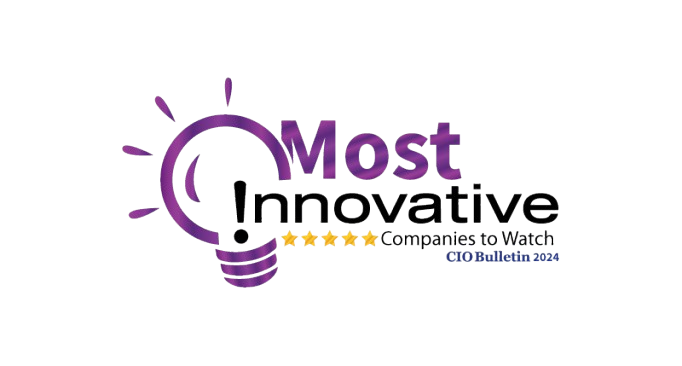5 Proven ROI Marketing Metrics to Make Inbound Marketing a No-brainer
April 18, 2023
Inbound marketing has become a major force in digital marketing over the past decade. As marketers strive to make their budgets go further and optimize their content for increased engagement and conversions, inbound marketing is increasingly being used to drive innovative and successful marketing strategies. To make the most out of inbound marketing strategies, it’s important to understand and measure the return on investment (ROI) associated with each action or campaign. Here are five proven ROI marketing metrics (ROI metrics) to help make inbound marketing a no-brainer.
1. Website Traffic
One of the easiest and most readily accessible ROI metrics to measure is website traffic. Most businesses have access to analytics software such as Google Analytics, which provides insights into the amount of visitors and page views that occur on a website over a given period. This data can be used to gauge the effectiveness of inbound marketing campaigns in driving more organic and organic search engine traffic to a website. With the right tracking and optimization, website traffic can be used to measure the overall ROI of an inbound marketing campaign.
2. Conversion Rate Another great ROI metric to measure is the conversion rate of inbound marketing campaigns. Conversion rate refers to the percentage of visitors to a website who are converted into a customer or lead. To track conversion rate, businesses need to set up event triggers in Google Analytics or a different analytics software and track the conversions that result from inbound campaigns. By tracking the number of visits and conversions generated by inbound channels, businesses can begin to determine the effectiveness of their campaigns.
3. Revenue and Cost per Lead Revenue and cost per lead are two high-level ROI metrics that can help provide valuable insights into inbound marketing campaigns. The cost and revenue associated with each lead will vary significantly from business to business and campaign to campaign, so it’s important to track this metric to gain an understanding of what is and isn’t working. Cost per lead is calculated by taking the total cost associated with the inbound campaign and dividing it by the total number of leads generated. Revenue per lead is calculated by taking the revenue generated by the campaigns, subtracting the cost of the campaign, and dividing it by the number of leads generated.
4. Return on Investment (ROI) The return on investment (ROI) is perhaps the most important ROI metric to consider when measuring the effectiveness of an inbound marketing campaign. ROI is calculated by taking the revenue generated from the campaign, subtracting all associated costs, and then dividing by the total cost of the campaign. ROI can be a powerful indicator of whether or not an inbound marketing campaign is profitable and whether it should be expanded upon.
5. Customer Lifetime Value (CLV) Finally, there’s customer lifetime value (CLV). CLV is a metric designed to measure the total value of a customer’s relationship with a business over the course of that relationship. By measuring the average order value (AOV), purchase frequency, and customer retention rate, businesses can get an idea of the projected lifetime value of their customers. With the right tracking and optimization, CLV can be used to measure the effectiveness of inbound marketing campaigns and make informed decisions going forward.
Ultimately, the ROI Metrics used to measure the effectiveness of inbound marketing campaigns will vary depending on the type of business and the end goals each campaign is working to achieve. However, the metrics listed above are some of the most important and commonly used ROI metrics to consider when evaluating the return on investment of an inbound marketing campaign. By leveraging these metrics, businesses can more easily identify their most important opportunities for growth and maximize the effectiveness of their inbound marketing campaigns.
2. Conversion Rate Another great ROI metric to measure is the conversion rate of inbound marketing campaigns. Conversion rate refers to the percentage of visitors to a website who are converted into a customer or lead. To track conversion rate, businesses need to set up event triggers in Google Analytics or a different analytics software and track the conversions that result from inbound campaigns. By tracking the number of visits and conversions generated by inbound channels, businesses can begin to determine the effectiveness of their campaigns.
3. Revenue and Cost per Lead Revenue and cost per lead are two high-level ROI metrics that can help provide valuable insights into inbound marketing campaigns. The cost and revenue associated with each lead will vary significantly from business to business and campaign to campaign, so it’s important to track this metric to gain an understanding of what is and isn’t working. Cost per lead is calculated by taking the total cost associated with the inbound campaign and dividing it by the total number of leads generated. Revenue per lead is calculated by taking the revenue generated by the campaigns, subtracting the cost of the campaign, and dividing it by the number of leads generated.
4. Return on Investment (ROI) The return on investment (ROI) is perhaps the most important ROI metric to consider when measuring the effectiveness of an inbound marketing campaign. ROI is calculated by taking the revenue generated from the campaign, subtracting all associated costs, and then dividing by the total cost of the campaign. ROI can be a powerful indicator of whether or not an inbound marketing campaign is profitable and whether it should be expanded upon.
5. Customer Lifetime Value (CLV) Finally, there’s customer lifetime value (CLV). CLV is a metric designed to measure the total value of a customer’s relationship with a business over the course of that relationship. By measuring the average order value (AOV), purchase frequency, and customer retention rate, businesses can get an idea of the projected lifetime value of their customers. With the right tracking and optimization, CLV can be used to measure the effectiveness of inbound marketing campaigns and make informed decisions going forward.
Ultimately, the ROI Metrics used to measure the effectiveness of inbound marketing campaigns will vary depending on the type of business and the end goals each campaign is working to achieve. However, the metrics listed above are some of the most important and commonly used ROI metrics to consider when evaluating the return on investment of an inbound marketing campaign. By leveraging these metrics, businesses can more easily identify their most important opportunities for growth and maximize the effectiveness of their inbound marketing campaigns.
Featured Resources
Check Our Latest Resources

Proven ROI has been recognized as one of the Most Innovative Companies to Watch 2024 by CIO Bulletin—a testament to the company’s forward-thinking approach to CRM investments and strategic partnerships. By working closely with leading CRM platforms like HubSpot, Proven ROI is revolutionizing how businesses manage customer relationships, scale their operations, and drive growth.



